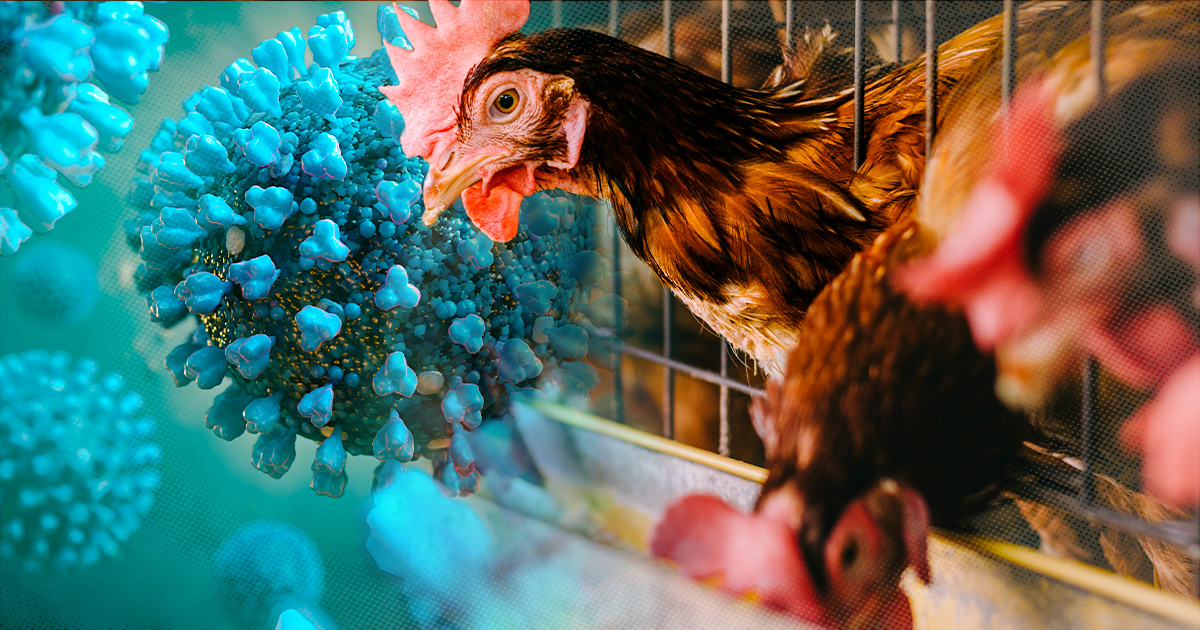Avian Influenza Transmission and Prevention

Avian influenza, also known as bird flu, is a highly contagious viral infection that affects birds, including poultry. Understanding how the virus is transmitted and implementing effective preventive measures are crucial for protecting poultry and preventing the spread of the disease.
The avian influenza virus can spread through various modes, including:
- Direct contact: Infected birds can transmit the virus to healthy birds through direct contact, such as sharing food, water, or equipment.
- Indirect contact: The virus can also be transmitted indirectly through contaminated surfaces, such as clothing, shoes, or equipment, that have come into contact with infected birds or their bodily fluids.
- Aerosols: Infected birds release the virus into the air through their respiratory secretions, which can be inhaled by healthy birds.
Preventive Measures for Poultry Farmers and Backyard Flock Owners
To prevent the spread of avian influenza, poultry farmers and backyard flock owners should implement comprehensive biosecurity measures, including:
- Isolation: Keep poultry away from wild birds and other animals that may carry the virus.
- Hygiene: Maintain clean and disinfected poultry houses, equipment, and vehicles.
- Vaccination: Vaccinate poultry against avian influenza strains prevalent in the area.
- Surveillance: Monitor poultry for signs of illness and report any suspected cases to veterinary authorities promptly.
Role of Biosecurity in Mitigating the Spread of the Virus, Avian influenza
Biosecurity plays a critical role in mitigating the spread of avian influenza. By implementing strict biosecurity measures, poultry farmers and backyard flock owners can create a protective barrier around their flocks, reducing the risk of exposure to the virus.
Effective biosecurity measures include:
- Restricted access: Limit access to poultry houses and flocks to authorized personnel only.
- Disinfection: Disinfect vehicles, equipment, and clothing before entering and leaving poultry areas.
- Pest control: Implement measures to prevent wild birds and rodents from entering poultry houses.
- Record-keeping: Maintain accurate records of flock health, vaccinations, and any suspected cases of illness.
By adhering to these preventive measures and implementing comprehensive biosecurity protocols, poultry farmers and backyard flock owners can significantly reduce the risk of avian influenza outbreaks and protect their flocks from this highly contagious virus.
Avian influenza is a nasty virus that can wipe out entire flocks of birds. It’s a serious problem, but luckily we have scientists like Juan Fernando Quintero working on it. Quintero is a leading expert on avian influenza, and he’s made some major breakthroughs in our understanding of the virus.
Thanks to his work, we’re now better equipped to prevent and treat avian influenza, which is good news for both birds and humans.
Avian influenza is a serious disease that can affect birds of all ages. It can cause a variety of symptoms, including respiratory problems, coughing, sneezing, and diarrhea. In severe cases, it can even lead to death. While avian influenza is not a major threat to humans, it can be a serious problem for poultry farmers.
To learn more about the latest stats and trends on Bobby Witt Jr’s home runs in 2024, check out this link: bobby witt jr home runs 2024. Avian influenza can also be a problem for wild birds, and it can have a devastating impact on their populations.